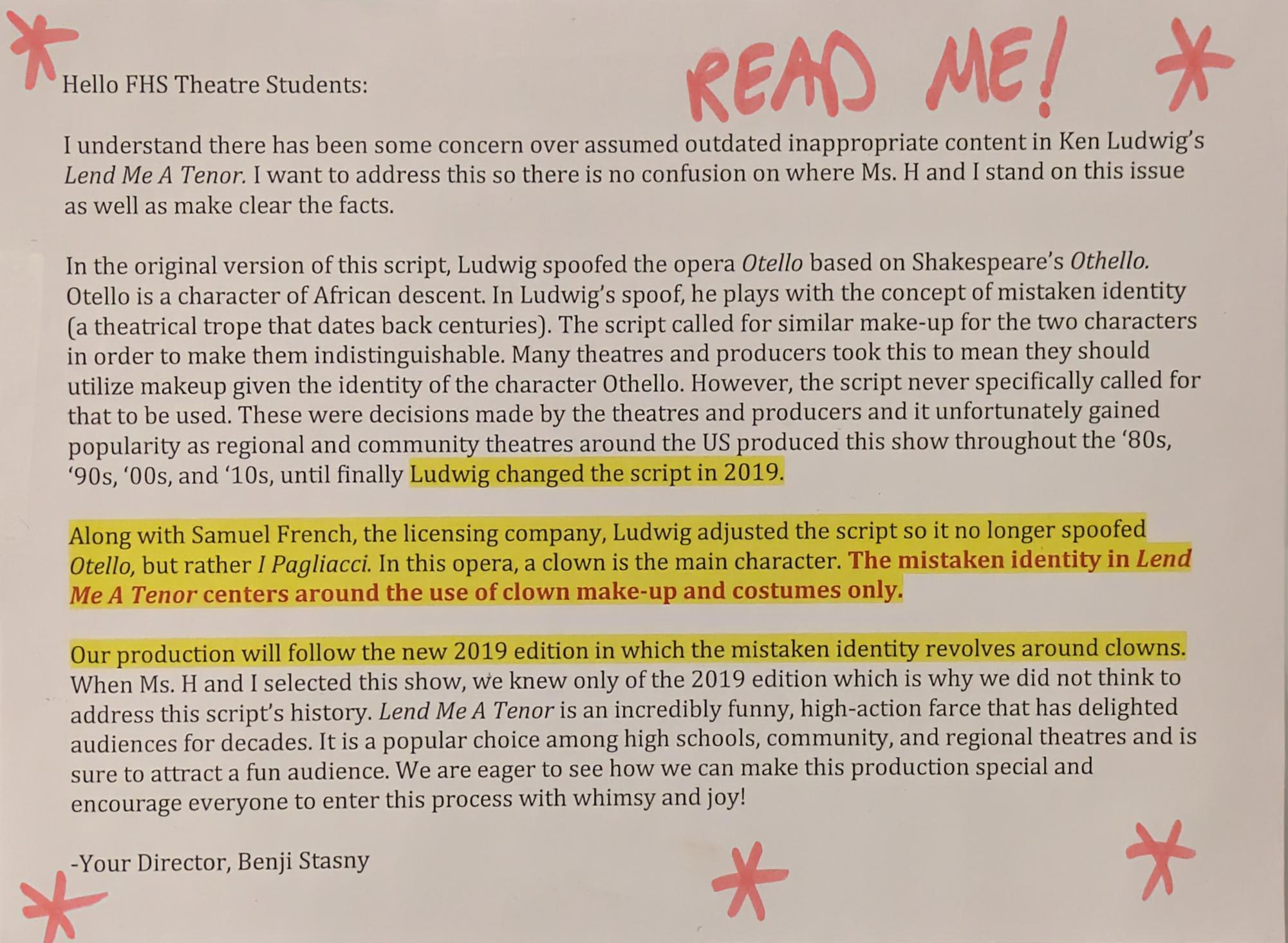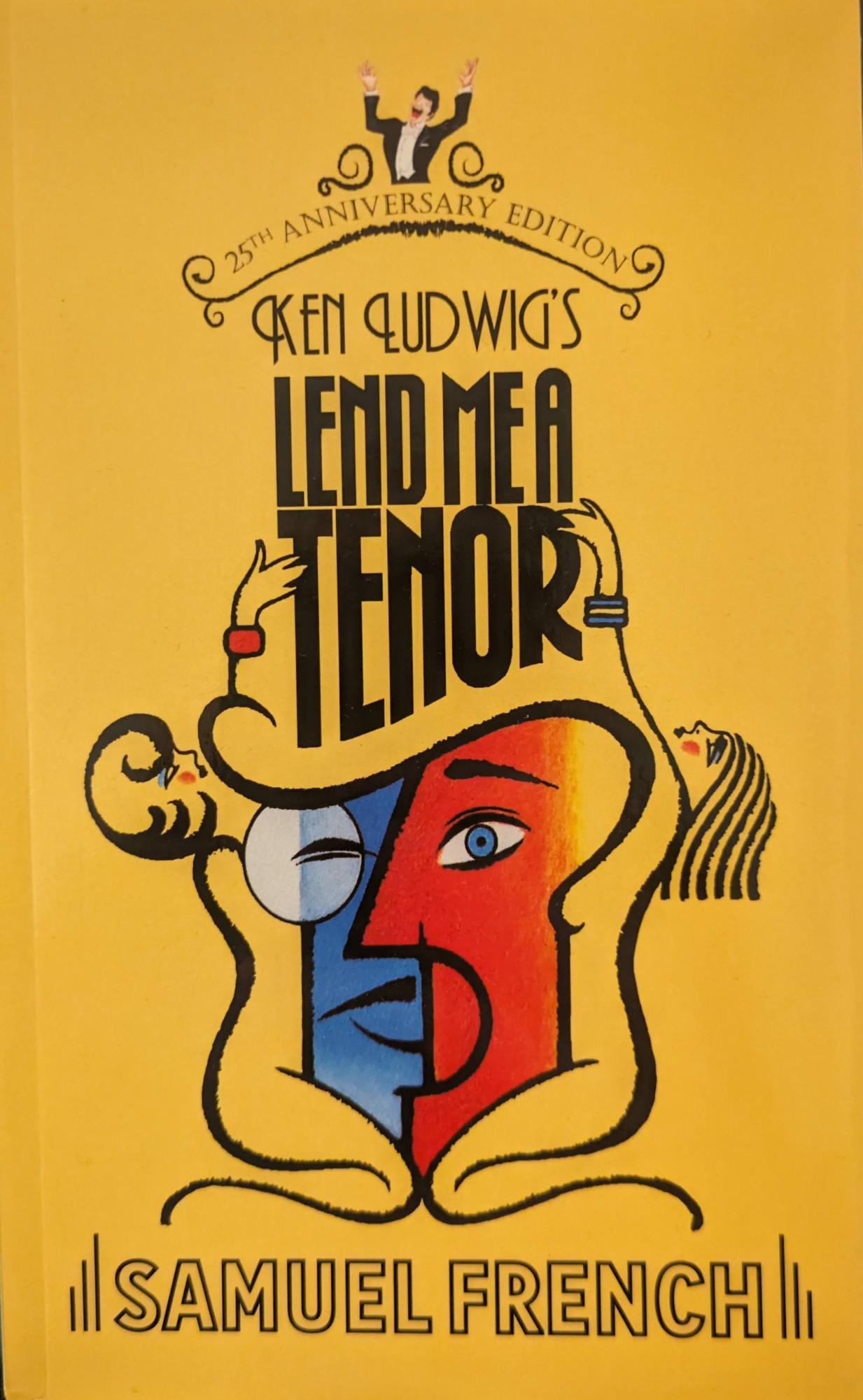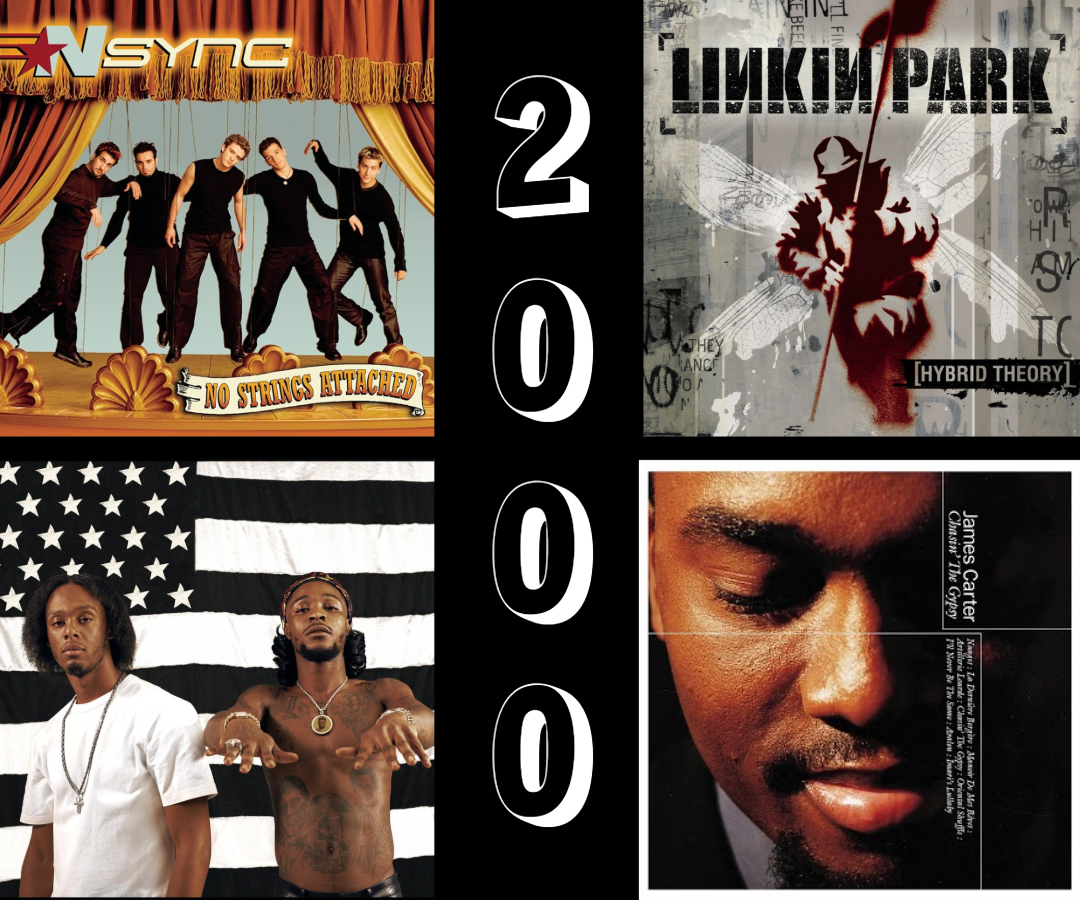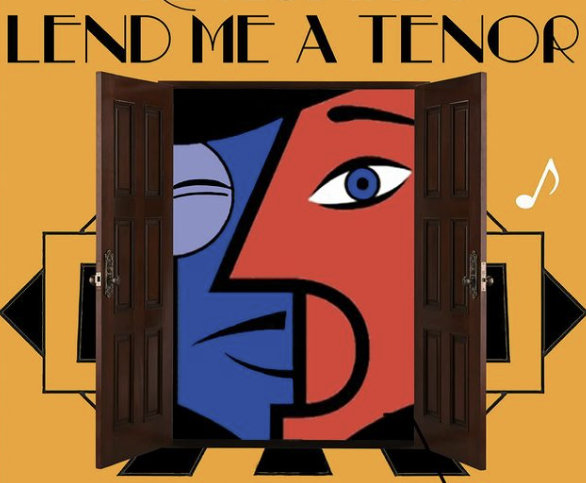During the second week of December, Fairview announced this year’s spring play, “Lend Me a Tenor”. At first, the play sounds like a great one, full of comedic surprises, but a deeper look reveals many controversial elements. The use of blackface makeup and sexual content in the original version of the show caused backlash over Fairview’s decision. In response to this, the play directors released a statement addressing the push to change the play. While the play that Fairview is producing does not contain these elements, I wanted to provide a clear source of information while also detailing the questionable aspects of the original production
The play “Lend Me a Tenor” was written by Ken Ludwig and premiered in 1986 in the West End of London, then a few years later on Broadway in 1989. Set in 1934, the plot focuses on a world-famous Italian tenor, Tito Mirelli, who is the star actor in the Cleveland Grand Opera Company’s production of the opera “Pagliacci“. The general manager Henry Saunders and his assistant Max navigate a hilarious farce involving the mistaken use of tranquilizers, doors flying open and closed, and much more. When Tito is presumed dead, Max, being a hidden tenor extraordinaire, takes on Tito’s costume and role in “Pagliacci”. The problem is, that Tito wakes up and gets ready himself, oblivious to Max’s efforts. This results in the two actors running around, indistinguishable from their fellow characters, leading to tons of confusion, laughs, and an unforgettable play.
THE CONTROVERSY
The original production of “Lend Me a Tenor” based the plot not around a spoof of “Pagliacci”, but around the quite similar opera “Otello” by Giuseppe Verdi in 1887, which is itself based on Shakespeare’s “Othello”. The lead character Otello is a Black man, so for the characters of “Lend Me a Tenor”, Tito and Max would have to be made identical. Theaters and producers took this to mean that make-up (in this case commonly known as blackface) should be used in order to make the characters look like each other. While the script isn’t explicit about using blackface, this directorial choice gained popularity until Ludwig changed the script in 2019.
The use of blackface dates back to at least 1441, but was at its height in the 18th century, and specifically within American and British theaters in the 1830s. Into the 1940s, the popularity of it declined, and was considered racist, highly offensive, and disrespectful by the late 1900s. The fact that Ludwig did not adapt his play until 2019 is quite surprising, and potentially alludes to the idea that the play has some deeper racist roots.
Another potentially controversial aspect of “Lend Me a Tenor” is its use of comedy through double-entendres: statements open to two meanings/interpretations, one of which is an implied sexual joke or comment. That, and the scripted scenes involving sexual acts further the idea that this play is inappropriate for a high school production. Despite this, high schools have masterfully adapted these scenes so as not to be inappropriate at all, if not slightly suggestive. I know that the play directors will also pursue this, so as to make the play appropriate for all ages.
THE ADAPTED PLAY
In the 2019 adaptation, Ludwig changes all references to “Otello”, and instead bases his play off of a parody of Ruggero Leoncavallo’s 1892 “Pagliacci” (which then became the play that characters acted within “Lend Me a Tenor”). It’s quite similar to “Otello”, both involve mistaken identities and confusion, aspects which Ludwig carries on in “Lend Me a Tenor”. The adapted version removes all use of blackface and instead centralizes the mistaken identity around costumes and clown make-up.
PLAY DIRECTOR’S STATEMENT

Students, specifically the actors interested in the play and the technical crew, lightly researched the play after it was announced, which led them to its controversial history. Because students did not fully research, they didn’t realize that the 2019 adaptation existed and was appropriate for Fairview to produce. Because of the inaccurate research, students brought their concerns to Sarah Halstead and Benji Stasny, the play directors, which prompted a statement to be released addressing the original play’s history. The statement also made it clear that Fairview would be putting on the 2019 adaptation of “Lend Me a Tenor”, complete with the original hilarity, but without the use of blackface.
Personally, I’m less bothered by past productions using blackface, and more so concerned that the statement released was quite unclear and confusing. There was one sentence in particular I found misleading: “When Ms. H and [Mr. Stasny] selected this play, we knew only of the 2019 edition which is why we did not think to address this script’s history.” While the beginning of the sentence heavily implies that the directors did not know of any other versions of “Lend Me a Tenor”, the second half implies that they did. While it’s good to know that Fairview will be producing the 2019 adaptation, it was concerning to think that the directors did not do any substantial research before picking the play.
Another part I found troubling was when Stasny addressed the racist history of the play. The statement didn’t explicitly say that the lead actor of “Otello” is a black man, but rather skimmed around the fact by describing him as “a character of African descent.” The word blackface was also skimmed over and the description was simplified in saying that “[producers] utilize makeup given the identity of the character Otello.” If you’re going to release a statement addressing controversial topics of race, don’t skim over the proper terms that dignify such a conversation.
MY REFLECTION
The poster that Fairview chose to represent the play is something else that I find quite inappropriate. As seen above, it depicts two women, very suggestively unclothed with their bodies inappropriately displayed. While the abstract faces seen between the women are creatively designed and accurately portray the main two characters, I believe that Fairview could have found a more suitable poster. Better yet, why not ask the art classes to design a unique poster? This could have been a great opportunity to involve students in the play production, and provide a fresh perspective on the story.
Linking back to a previous point, I’m surprised that such a modern play of the later 1980s would even consider the use of blackface to be appropriate, despite the story taking place in an earlier age. Also, Ken Ludwig is not some obscure playwright, his work has been performed in more than 30 countries and in over 20 languages. The fact that he would let blackface become so popular, even into the 21st century is concerning and makes me wonder how much I don’t know regarding controversial aspects that are continuously overlooked within theaters.
FINAL THOUGHTS
The original version of “Lend Me a Tenor” is at times controversial, but considering that Fairview will be producing the 2019 adaptation, I am confident that the story will be appropriate for all audiences. Ultimately, this play will be a hilarious one. The plot is well-crafted, and has been honed for years to the point of comedic perfection. Despite the original production being racially offensive, and including sexualized women, the 2019 adaptation that Fairview is putting together will be a treat to see. It’s a production that I am personally excited to see take form and know that it will deserve the genuine laughter of a full audience. However, don’t take your seats without knowing the nuances and history behind this highly acclaimed production.
Please also read this article which provides key details and updated information regarding the controversy of Lend Me a Tenor.

















